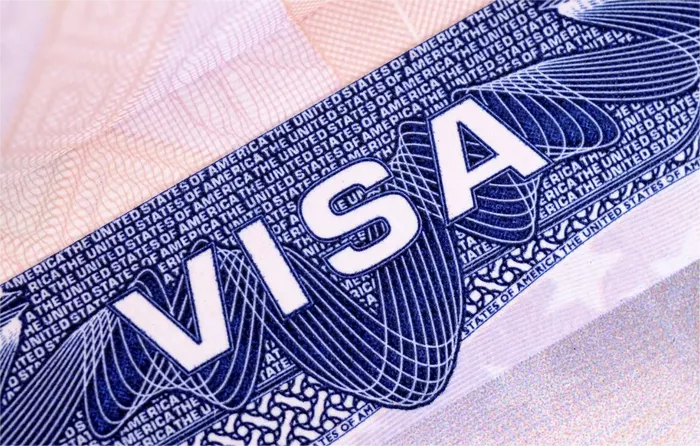Immigrating to a new country is a significant life decision that involves numerous legal processes and considerations. Among these is obtaining an immigrant visa, which grants individuals the authorization to live and work permanently in their chosen destination. However, it’s essential to understand the duration of validity associated with immigrant visas to navigate the immigration journey effectively. In this comprehensive guide, we delve into the intricacies of immigrant visa validity, exploring its significance, factors influencing its duration, and what individuals need to know to maintain their legal status in their new home.
Immigrant Visa Validity: An Overview
An immigrant visa serves as the first step towards permanent residency in a foreign country. Once issued, it enables individuals to enter the country and establish themselves as lawful permanent residents (LPRs). However, unlike non-immigrant visas, which often have specific expiration dates, the validity of an immigrant visa operates differently.
Typically, immigrant visas have a finite period of validity, ranging from several months to years. However, the duration of validity is not synonymous with the duration of legal permanent residency. Instead, it represents the timeframe within which visa holders must enter the country to activate their status as lawful permanent residents.
Factors Influencing Immigrant Visa Validity
Several factors influence the duration of validity for immigrant visas, reflecting the complexity of immigration regulations and policies. Understanding these factors is crucial for individuals planning their relocation and ensuring compliance with immigration laws.
1. Priority Date: In employment-based and family-sponsored immigration categories, individuals often face long waiting periods due to annual visa quotas. The priority date, determined by the submission of relevant petitions, plays a pivotal role in this process. Immigrant visas become available based on priority dates, and individuals must apply for their visas within a specified timeframe once they become current.
2. Administrative Processing: Immigration procedures involve extensive administrative processing, which can significantly impact the duration of visa validity. Delays in security clearances, background checks, and document verification processes can extend the timeframe for visa issuance, thereby affecting its validity period.
3. Medical Examination Validity: As part of the immigration process, applicants are required to undergo a medical examination to ensure they meet health-related admissibility requirements. The validity of the medical examination results, which varies from country to country, may influence the duration of visa validity. Applicants must enter the country before their medical examination results expire to avoid complications.
4. Visa Bulletin Updates: The Department of State releases a monthly Visa Bulletin, which provides information on visa availability for different immigration categories and countries. Changes in visa bulletin updates, including retrogression or advancement of priority dates, can impact the validity period of immigrant visas. Applicants must monitor visa bulletin updates closely to make informed decisions regarding their immigration plans.
Duration of Immigrant Visa Validity: Case-Specific Considerations
While immigrant visas generally have a finite period of validity, specific circumstances may lead to variations in the duration of validity for individual cases. It’s essential for prospective immigrants to consider these case-specific factors when planning their relocation and complying with immigration requirements.
1. Conditional Permanent Residency: In certain immigration categories, such as the EB-5 Investor Visa and spousal visas based on marriage less than two years old, individuals are granted conditional permanent residency upon entry to the United States. Conditional permanent residency is valid for two years, during which individuals must fulfill specific requirements, such as maintaining investment levels or demonstrating a bona fide marital relationship, to remove the conditions and obtain unconditional permanent residency.
2. Derivative Beneficiaries: Family-sponsored and employment-based immigrant visas often allow for derivative beneficiaries, such as spouses and children, to accompany or follow-to-join the principal visa holder. The validity of derivative visas is typically tied to the principal applicant’s visa, ensuring consistency in the immigration status of family members.
3. Visa Revalidation: In certain circumstances, immigrant visas may be revalidated to extend their validity beyond the initial expiration date. This often occurs when individuals are unable to enter the country before their visa expires due to unforeseen circumstances or administrative delays. Visa revalidation processes vary depending on the immigration category and country-specific regulations.
Maintaining Legal Status: Compliance Beyond Visa Validity
While understanding the duration of immigrant visa validity is crucial, maintaining legal status goes beyond visa expiration dates. Once individuals enter the country and become lawful permanent residents, they must adhere to various immigration laws and regulations to preserve their status and avoid jeopardizing their residency rights.
1. Continuous Residence: Lawful permanent residents are required to maintain continuous residence in the United States, meaning they must primarily reside in the country and not engage in extended periods of absence without obtaining reentry permits or other applicable waivers. Failure to meet continuous residence requirements may lead to abandonment of permanent residency status.
2. Tax Obligations: Lawful permanent residents are subject to U.S. tax laws and are required to report their worldwide income to the Internal Revenue Service (IRS). Compliance with tax obligations, including filing annual tax returns and paying any applicable taxes, is essential for maintaining legal status and avoiding potential immigration consequences.
3. Criminal and Immigration Violations: Individuals with lawful permanent resident status must refrain from engaging in criminal activities or violating immigration laws, as such actions can result in deportation proceedings and loss of residency rights. It’s imperative to understand the potential consequences of criminal convictions and immigration violations on immigration status and take proactive measures to avoid them.
Conclusion
Navigating the complexities of immigrant visa validity is essential for individuals seeking to establish permanent residency in a foreign country. By understanding the factors influencing visa validity, considering case-specific considerations, and maintaining compliance with immigration laws, individuals can successfully transition to life as lawful permanent residents and build a secure future in their new home. Continuous vigilance, adherence to legal requirements, and informed decision-making are key elements in ensuring a smooth and successful immigration journey.


